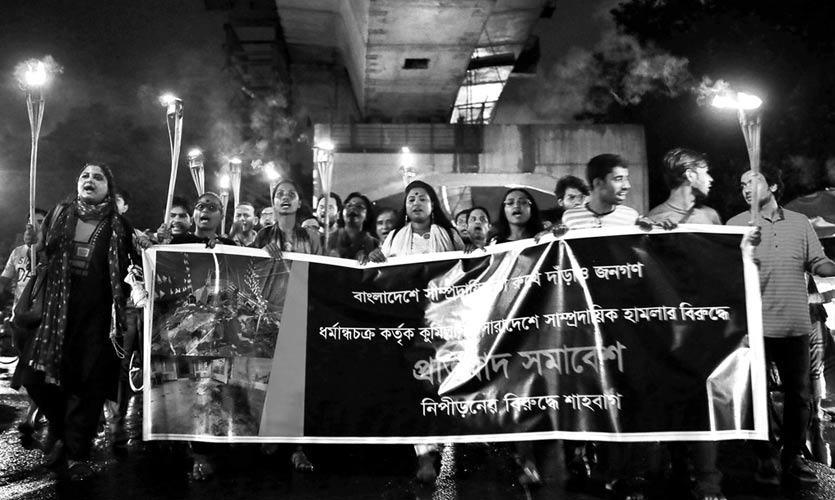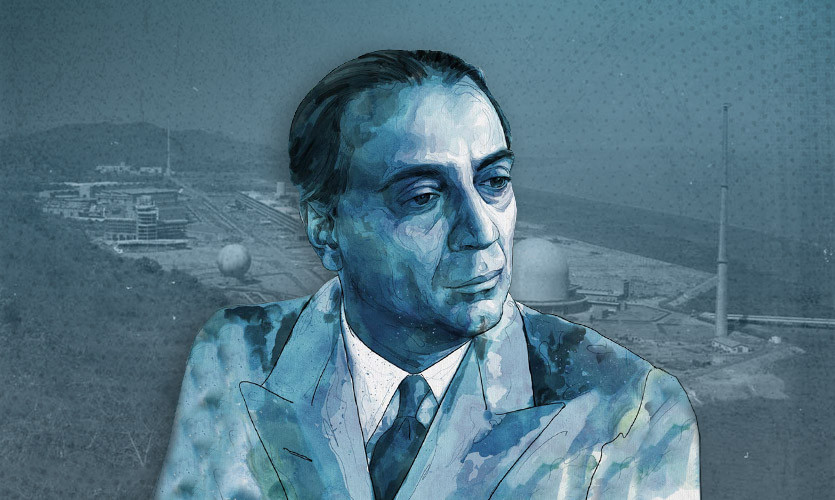Following the recent communal violence in Bangladesh, discussion over the need for the Citizenship (Amendment) Act has started making the rounds once again.
The demand has been raised by several politicians, analysts and media persons, including senior Congress leader Milind Deora, who has asked for the implementation of the Citizenship (Amendment) Act, 2019 (CAA) after amending the deadline. The current deadline for allowing migrants from the persecuted minority communities of Pakistan, Bangladesh and Afghanistan, to stay freely in India, requires them to have entered the country before December 31, 2014.
Bangladesh Violence
Adding to the violence faced by the inhabitants of Kashmir Valley at the hands of militants and terrorist forces, the woes of the Hindu minority in Bangladesh have created widespread concern in the country. Last week, allegedly reacting to rumours of blasphemy on social media that the Quran had been disrespected by putting it at the knees of a Hindu god’s idol, members of the Muslim majority community in Bangladesh destroyed various Durga puja pandals and Hindu temples. Starting from the town of Comilla in Chittagong, Hindu places of worship across the country were reportedly attacked by angry mobs and Hindu homes were torched.
The Minister of Home Affairs of Bangladesh, Asaduzzaman Khan said that it was a “pre-planned conspiracy” to disturb the communal harmony in the country. While Prime Minister Sheikh Hasina has ordered strict action against those responsible for inciting violence, regardless of their religion, the Bangladeshi home minister has said that it is the country’s “internal matter”. Khan said, “If India wants to know anything, we will certainly inform them through proper diplomatic channels. No one has asked anything in this matter so far. All I can say is that the situation is under control as we have arrested hundreds of people after the incident.” As of October 19, 71 cases were registered in connection with the widespread violence and 450 suspects were arrested.
Twitter accounts of Hindu groups such as the International Society for Krishna Consciousness (ISKCON) and the Bangladesh Hindu Unity Council, which shared images and videos of the violent occurrences, were suspended on October 20. ISKCON vice-president and spokesperson (Kolkata), Radharaman Das said that radical Islamists have not only killed minority Hindus but also “killed the voices of the people of Bangladesh”. ISKCON temple divisional secretary at Chittagong, Chinmoy Krishna Das said, “A mob of around 500 people attacked the ISKCON temple on Friday. A member of the temple has succumbed to the injuries after the attack. Apart from that, a large number of people were also injured in the attack and are now admitted to the hospital.”
Earlier today, Bangladesh Police reportedly identified the man who placed the Quran at the feet of the deity as Iqbal Hossain. CCTV footage allegedly shows him place the holy book taken from a mosque at the knee of a Hanuman idol. He is yet to be arrested. It would spell unprecedented trouble for the Hasina regime if the potential involvement of radical Islamist factions of the country in orchestrating the events since the beginning is proven.
Minorities in Bangladesh, specifically Hindus, have faced increased atrocities since the Liberation War. The war, also known as the Bangladesh War of Independence, was fought in the wake of the Pakistani military’s Operation Searchlight against the people of Bangladesh (East Pakistan at the time). Owing to religious intolerance, the Hindu community that formed about 20 percent of the country’s population at the time of the war in 1971, now comprises about 8 percent of the Bangladeshi society.
CAA Urgency
The most fundamental argument against the implementation of the CAA is the exclusion of Muslims from the group. The National Register of Citizens (NRC) implemented in Assam has contributed to the fear since a lot of locals in the state, across religions, have been left out due to lack of documentation. Given this limitation, an all-India NRC would mean all-India chaos. Another argument cited is that the CAA violates Article 14 of the Constitution of India – the Right to Equality.
Under the Foreigners Act, 1946, and the Passport (Entry into India) Act, 1920, illegal migrants can be imprisoned or deported from the country. The CAA would effectively exempt those people from the two acts who are part of the persecuted minority groups such as the Hindus, Sikhs, Buddhists, Jains, Parsis, and Christians in Pakistan, Bangladesh and Afghanistan and have entered India before December 31, 2014. Since these are Muslim majority countries, that have Islam as a state religion, objectively, inclusion of the Muslim community in the act would be contradictory. What purpose would it achieve to provide refuge to the very people that the oppressed are trying to escape?
Moreover, the CAA does not violate the Right to Equality. Article 14 states that those in similar conditions must be treated equally, allowing for a difference in treatment of those oppressing and the oppressed. While that also eliminates the persecuted Rohingya Muslims of Myanmar based on religion, putting the security of the several other communities at risk would again become contradictory. Although most experts are unclear on why Afghanistan has been included, several thousands of Hindus and Sikhs have fled the country over the past years and sought refuge in places like Jammu and Delhi, giving probable cause for its addition. However, protecting such minorities in Pakistan and Bangladesh has been a long time coming. Seasoned journalist R. Jagannathan writes, “As the only country with a substantial Hindu majority (Nepal and Mauritius don’t count), this is India’s dharmic duty.”
The Joint Parliamentary Committee to which CAA was referred to before its introduction in the Lok Sabha, noted in its report that the rest of the countries in the region, like India, were not signatories to the United Nations’ 1951 Refugee Convention and 1967 Protocol. They also highlighted the need for biometrics and documents to aid security agencies in differentiating between migrants and infiltrators. “The Committee are deeply concerned to note that there are large number of illegal Bangladeshi migrants residing in the Country and some of them have been found to be indulging in activities prejudicial to the national security,” stated the report.
The parliamentary committee, which comprises Lok Sabha and Rajya Sabha members of various political parties, commenced the report with quotes by the foundational leaders of independent India who highlighted the need for a citizenship act, citing the atrocities in Pakistan and Bangladesh (East Pakistan until 1971). One such entry was of Dr Syama Prasad Mookerjee, who on April 19, 1950, said:
“…the circumstances that have led to my resignation are primarily concerned with the treatment of minorities in Pakistan, specially in East Bengal… Let us not forget that the Hindus of East Bengal are entitled to the protection of India, not on humanitarian considerations alone, but by virtue of their sufferings and sacrifices, made cheerfully for generations, not for advancing their own parochial interests, but for laying the foundations of India’s political freedom and intellectual progress… The establishment of ‘a homogenous Islamic State’ is Pakistan’s creed and a planned extermination of Hindus and Sikhs and expropriation of their properties constitute its settled policy. As a result of this policy, life for the minorities in Pakistan has become “nasty, brutish and short”.
While the CAA has its share of limitations and unexplained basis of judgments, if recent events are considered, its implementation seems urgent in order to protect India and her own people, regardless of religion.
The Horus Eye is a weekly column written by Divya Bhan analysing current affairs and policies. This column does not intend or aim to promote any ideology and does not reflect the official position of The Sparrow.
Also read: Kashmiri Pandits: Exiled With No End In Sight
Also read: The Curious Case Of Compassion Fatigue With The Rohingyas










